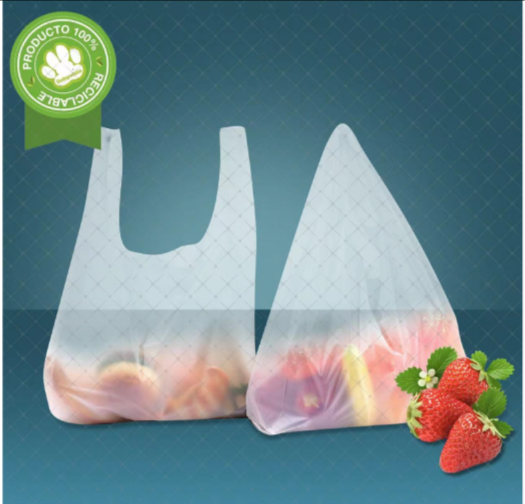Eco-Friendly Disposable Bags for Sustainable Waste Management Solutions
The Rise of Bio Disposable Bags A Sustainable Solution for Our Environment
In today's rapidly changing world, environmental concerns are at the forefront of global discussions. Plastic pollution has become one of the most significant threats to our ecosystems, prompting a search for sustainable alternatives. One such alternative gaining traction is bio disposable bags. As consumers become more environmentally conscious, the demand for biodegradable and compostable materials is increasing. This article will explore the benefits of bio disposable bags, their impact on the environment, and their role in shaping a sustainable future.
Understanding Bio Disposable Bags
Bio disposable bags are made from natural materials such as starch, polylactic acid (PLA), or other renewable resources. Unlike traditional plastic bags that can take hundreds of years to decompose, bio disposable bags are designed to break down more quickly and safely in a composting environment. When disposed of correctly, they can return to the earth without leaving behind toxic residues, making them an attractive option for environmentally conscious consumers.
Environmental Benefits
The primary advantage of bio disposable bags is their reduced environmental impact. Traditional plastic bags are a major contributor to ocean pollution and landfill overflow. In contrast, bio bags typically break down within a few months under the right conditions. This rapid decomposition minimizes the burden on landfills and reduces the likelihood of marine animals ingesting plastic debris, which can be fatal.
Moreover, the production of bio disposable bags often requires fewer fossil fuels compared to conventional plastics. Many bio bags are made from crops that can be replenished, decreasing the reliance on non-renewable resources. By shifting towards bio-based materials, we contribute to a more sustainable cycle of production and waste management.
Meeting Consumer Demand
bio disposable bags

As sustainability becomes a priority for consumers, companies are responding by adopting eco-friendly products. Retailers are increasingly offering bio disposable bags as an alternative to traditional plastic bags, often providing them at the checkout to encourage their use. This shift not only meets consumer demand but also contributes to a positive brand image as environmentally responsible businesses.
Additionally, many governments and municipalities are enacting regulations that restrict the use of single-use plastic bags. In response, businesses are turning to bio disposable bags as a compliant solution. By doing so, they not only adhere to regulations but also attract eco-conscious customers, making it a win-win situation for both parties.
Challenges and Considerations
Despite the numerous advantages of bio disposable bags, challenges remain. One concern is the need for proper disposal methods. While these bags are biodegradable, they require specific conditions to decompose effectively. Many consumers may incorrectly dispose of them in regular trash bins, leading to confusion and potential environmental harm. To address this, public education campaigns are essential to inform consumers about the importance of composting and the correct disposal methods.
Another challenge is the cost. Bio disposable bags can be more expensive to produce than traditional plastic bags. This can impact retailers, especially small businesses, which may hesitate to transition to bio alternatives due to budget constraints. However, as technology advances and production processes become more efficient, it is likely that costs will decrease, making bio disposable bags more accessible to all.
Conclusion
The rise of bio disposable bags represents a significant step towards a more sustainable future. These bags offer an environmentally friendly alternative to traditional plastic bags, helping to reduce pollution and conserve natural resources. As consumer demand for sustainable products continues to grow, and as regulations support the reduction of plastic waste, bio disposable bags are poised to play an essential role in reshaping our approach to waste management.
While challenges remain, with proper education and collaboration amongst consumers, businesses, and governments, bio disposable bags can contribute to a cleaner and healthier planet. Embracing these innovative solutions is more than just a trend—it is a necessary move towards a sustainable future for generations to come.
-
The Best Uses for Small Trash Bags in Daily LifeNewsJul.01,2025
-
Stylish Reusable Grocery Bags TrendsNewsJul.01,2025
-
Shipping Advantages of Using Bubble Envelopes BulkNewsJul.01,2025
-
How Compostable Mailing Bags Reduce Environmental ImpactNewsJul.01,2025
-
Environmentally - Friendly Bulk Poly MailersNewsJul.01,2025
-
Eco Friendly Custom Laminated Tote BagsNewsJul.01,2025
-
Have the freedom of customizing your custom mailers any way you want! Our dedicated packaging support will help deliver you the mailing experience you need to elevate your shipping experience to the next level! Start making a strong impression on your customers and stand out from your competitors! -
LIYA uses high quality raw materials which directly purchased from large enterprises domestic and overseas such as PetroChina, Sinopec, Sabic, Equate, ExxonMobil, Dow Chemical, Total, and Borouge, ensuring the price advantage and quality of the raw materials. -
LIYA uses high quality raw materials which directly purchased from large enterprises domestic and overseas such as PetroChina, Sinopec, Sabic, Equate, ExxonMobil, Dow Chemical, Total, and Borouge, ensuring the price advantage and quality of the raw materials.





